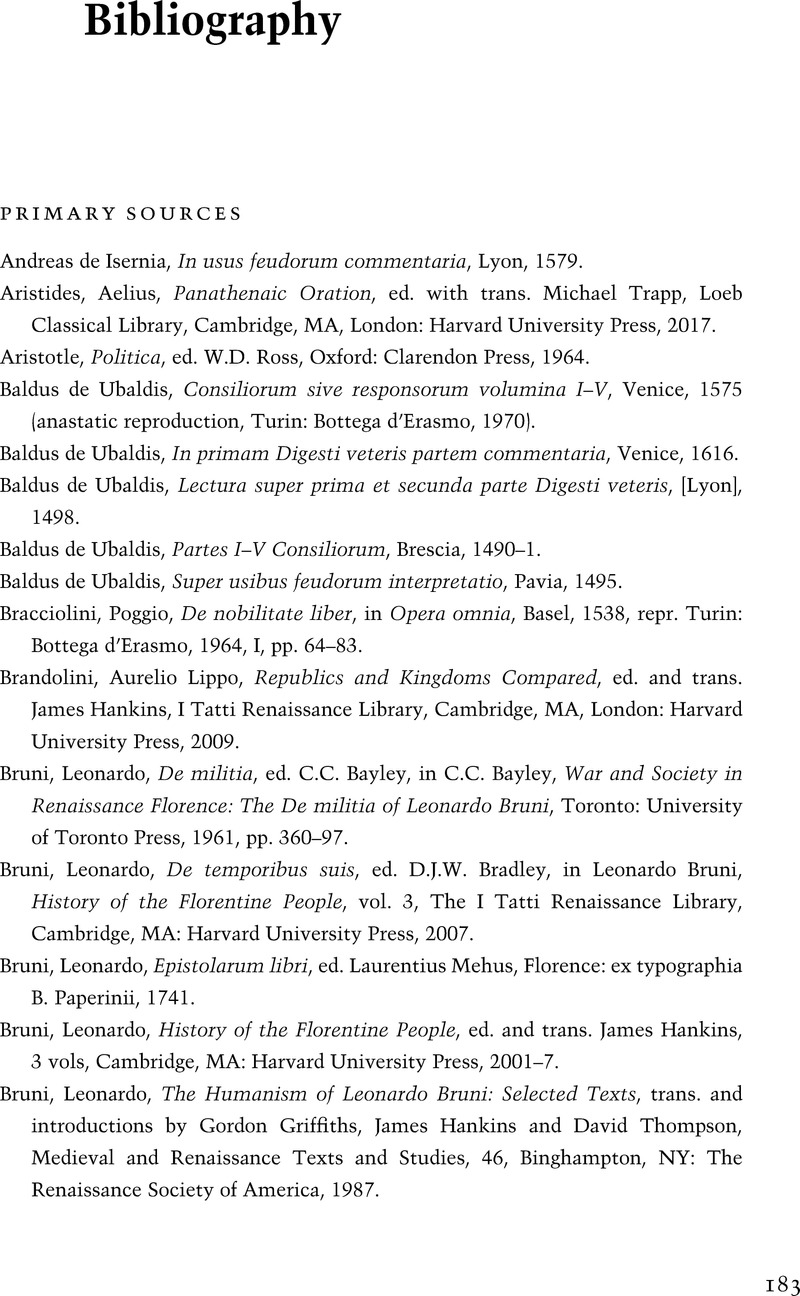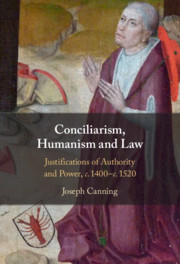Bibliography
Published online by Cambridge University Press: 18 June 2021
Summary

- Type
- Chapter
- Information
- Conciliarism, Humanism and LawJustifications of Authority and Power, c. 1400–c. 1520, pp. 183 - 194Publisher: Cambridge University PressPrint publication year: 2021



